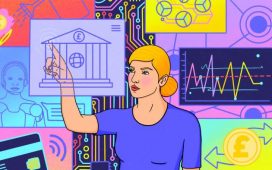Questions and answers. But mostly, questions.
Digital media company, BuzzFeed (NASDAQ: BZFD), is going big on AI-generated content. According to Forbes, the company plans to use ChatGPT’s Open AI to generate specific content for the site, including quizzes – the first step in greater content creation using the innovative learning engine inside ChatGPT. In a related story, just last month the company announced it would cut its workforce by about 12%. “In 2023, you’ll see AI inspired content move from an R&D stage to part of our core business, enhancing the quiz experience, informing our brainstorming, and personalizing our content for our audience,” BuzzFeed Chief Executive Jonah Peretti said in memo to employees.
“The creative process will increasingly become AI-assisted and technology-enabled,” Peretti shared in the memo, according to Reuters. “If the past 15 years of the internet have been defined by algorithmic feeds that curate and recommend content, the next 15 years will be defined by AI and data helping create, personalize and animate the content itself… we see the breakthroughs in AI opening up a new era of creativity that will allow humans to harness creativity in new ways with endless opportunities and applications for good. In publishing, AI can benefit both content creators and audiences, inspiring new ideas and inviting audience members to co-create personalized content,” according to reports in Variety.
Impact of AI on Media Outlets: BuzzFeed, Microsoft and More
Investigative reports on The Byte shared that media website CNET was using AI technology, under articles penned by the anonymous “CNET Money Staff”. The AI was created by CNET resources, and only used for a very small number of posts before human oversight detected significant misstatements of facts, errors and plagiarized content, according to multiple news sources.
Moving away from home-grown solutions to big-league investment, Microsoft has invested billions in OpenAI. Satya Nadella, CEO of Microsoft, has said the company is seeking more ways to commercialize the platform.
Meanwhile, BuzzFeed has inked a multi-year deal with Facebook parent, Meta, for content creation. NASDAQ reports that the deal is valued at $10 million. The company’s stock has spiked as a result of the new deal, and the announcement of the use of Open AI’s ChatGPT for content creation.
Humanity and AI Technology: A Delicate Balance
Peretti says that human oversight will still matter, in terms of providing ideas and “inspired prompts”. But what’s really inspired shareholder enthusiasm is the enablement of new creative technology. The recent uptick in stock price demonstrates what Benjamin Graham first shared: in the short run, the stock market is a voting machine.
“Investors are going gaga over artificial intelligence,” Tony Wan tells Forbes. He’s head of platform at Reach Capital, a VC firm based in San Francisco. But many are not as excited about what OpenAI can create.
Risks and Reward, Inside the Potential of ChatGPT
ChatGPT has been enthusiastically embraced by students, while creating tidal waves of mistrust and concern among educators. Teachers view the potential for plagiarism as just one potential threat, no to mention the pure avoidance of learning, with ChatGPT. Because there’s no need to examine the nuances of Thomas Hardy or Coleridge, when you can just ask an AI to generate your essay on these (and other) topics. To be fair, a teacher could also ask ChatGPT to generate the essay questions – reminding us that the machine could do the heavy lifting on both sides of the academic equation.
The software’s limitations are weakening every day, as the engine continues to digest greater and greater amounts of data. The world’s most powerful chatbot is doing the most human of tasks: learning. And creating.
Ultimately, it is the uniquely human ability of language that separates us from the rest of the animal kingdom. Our ability to develop speech elevated our ancestors past faster, stronger and more ferocious beasts – turning creativity into a powerful tool for shaping the world around us. Communication and collaboration ensured our survival, a maxim that is as true today as it was thousands of years ago. Companies that collaborate and communicate effectively are the places that employees seek, and customers find, as resources for clarity, value and more. The greatest leaders are great communicators (if not in style, in substance), as our creativity lives inside of communication.
Our gift of language propelled the ancients to greater heights, as it continues to do today. Language is at the center of every organization, every leadership meeting, every company retreat, and every executive decision. Now, machines have learned how to learn, inside our language. And, while the decision-making process on content still rests with humans, this human wonders: for how long?
We’ve developed a multitude of tools to help us share our language skills – from Slack to texting to Twitter, there are seemingly endless tools available for sharing the most human of interactions: the conversation. Maybe it’s time to talk about what happens when the tools start to use us. When even the Associated Press celebrates its use of AI-generated content, it may already be too late.











